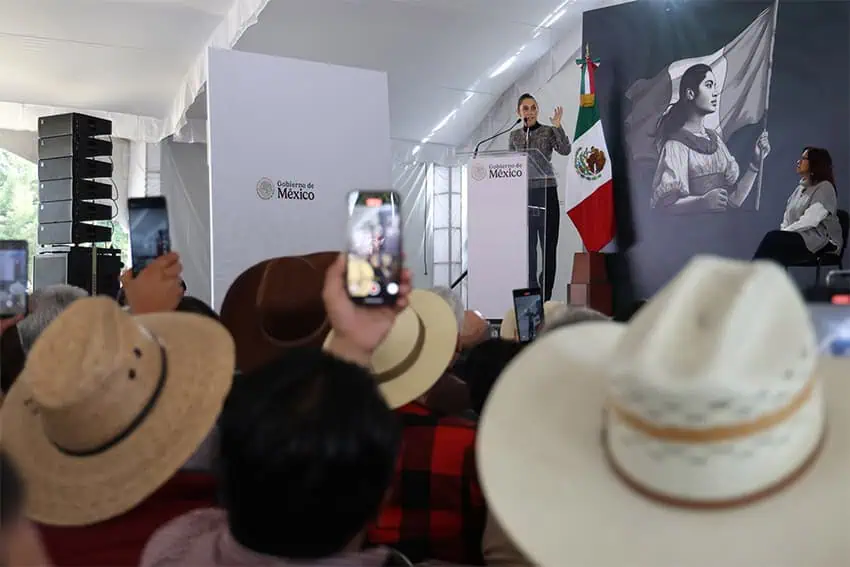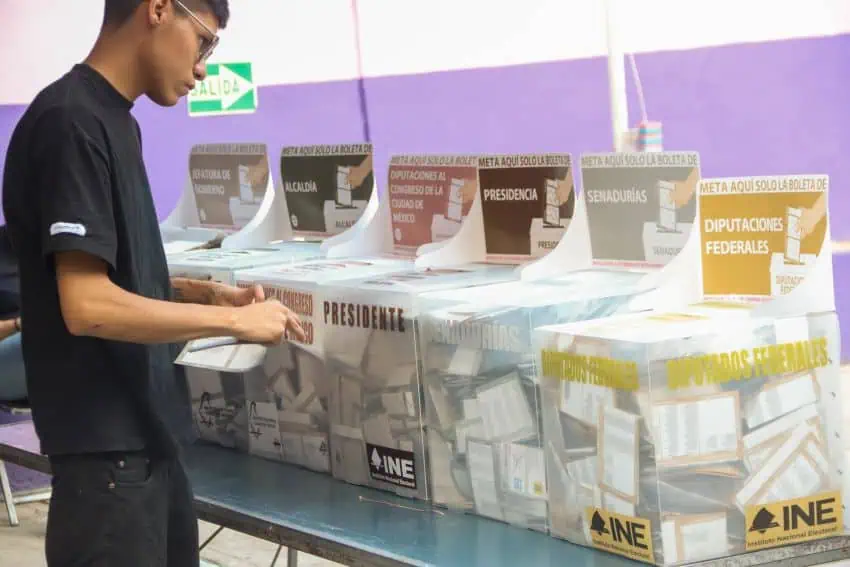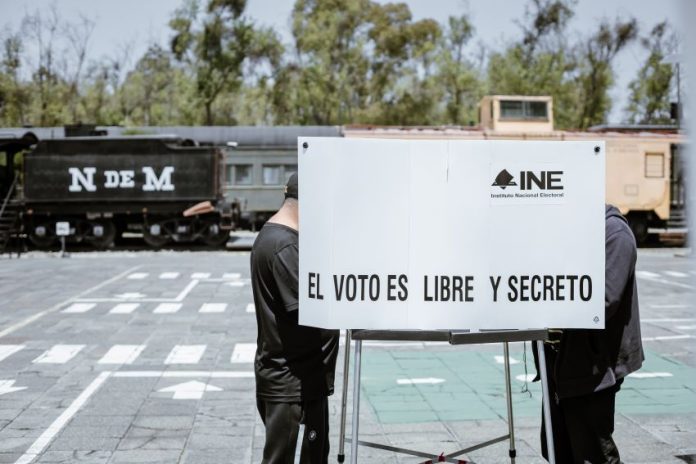President Claudia Sheinbaum said Sunday that Mexico is “perhaps” the most democratic country in the world given that it will hold judicial elections in 2025.
Speaking at an event in Tlaxcala, Sheinbaum highlighted that a number of constitutional reforms were approved by Congress in recent months, allowing Mexico to “recover the social sense” and the “patriotic sense of our Constitution.”

“Thanks to senators and deputies, this year something unique in Mexico and the whole world was approved. Next year, on June 1, thanks to one of the reforms to the Constitution, the judicial power will be elected by the people of Mexico,” she said, eliciting cheers and applause from attendees of the event in Panotla, Tlaxcala.
Sheinbaum noted that Mexico’s president and lawmakers are already “democratically elected” before emphasizing that the nation’s judges will soon be chosen by citizens as well.
“Now judges, magistrates and Supreme Court justices will be elected democratically. This makes us perhaps the most democratic country there is on the face of Earth,” she said.
“Our adversaries say there is authoritarianism but how [can there be] if it is the people who decide? Democracy is government of the people by the people for the people. And now the judicial power will serve the people of Mexico and the nation as it should have always done,” Sheinbaum said.

The president, like her predecessor Andrés Manuel López Obrador, has argued that judicial reform was needed to rid the nation’s courts of corruption and other ills. López Obrador submitted the reform proposal to Congress in February and signed it into law two weeks before he left office at the end of September. A second round of judicial elections in 2027 will follow those scheduled to take place on June 1, 2025.
Critics assert that the election of judges will lead to the politicization of Mexico’s judiciary. In a nutshell, they argue that Mexico’s courts will come to be dominated by judges sympathetic to the ruling Morena party’s agenda, thus removing an essential check on government power.
Candidates for judgeships will be selected by the president, the Congress — which is currently dominated by Morena — and the judiciary itself. In 2025, citizens will elect a total of 881 federal judges, including nine justices who will sit on the bench of the Supreme Court, two fewer than is currently the case.
“On June 1 next year,” Sheinbaum said on Sunday, “together we will elect justices of the Supreme Court of Justice of the Nation.”
“It is something historic,” she added.
The government has also faced criticism over some of the other reforms that were recently approved by Congress, including one that eliminated seven watchdog agencies.
Government critics have long argued that the incorporation of autonomous agencies into ministries and other federal departments would eliminate important counterweights to executive power and represent a backward step for democracy.
Sheinbaum has said that the reform will lead to “more transparency” and help to eliminate corruption while generating significant savings for the public purse.
Mexico News Daily
